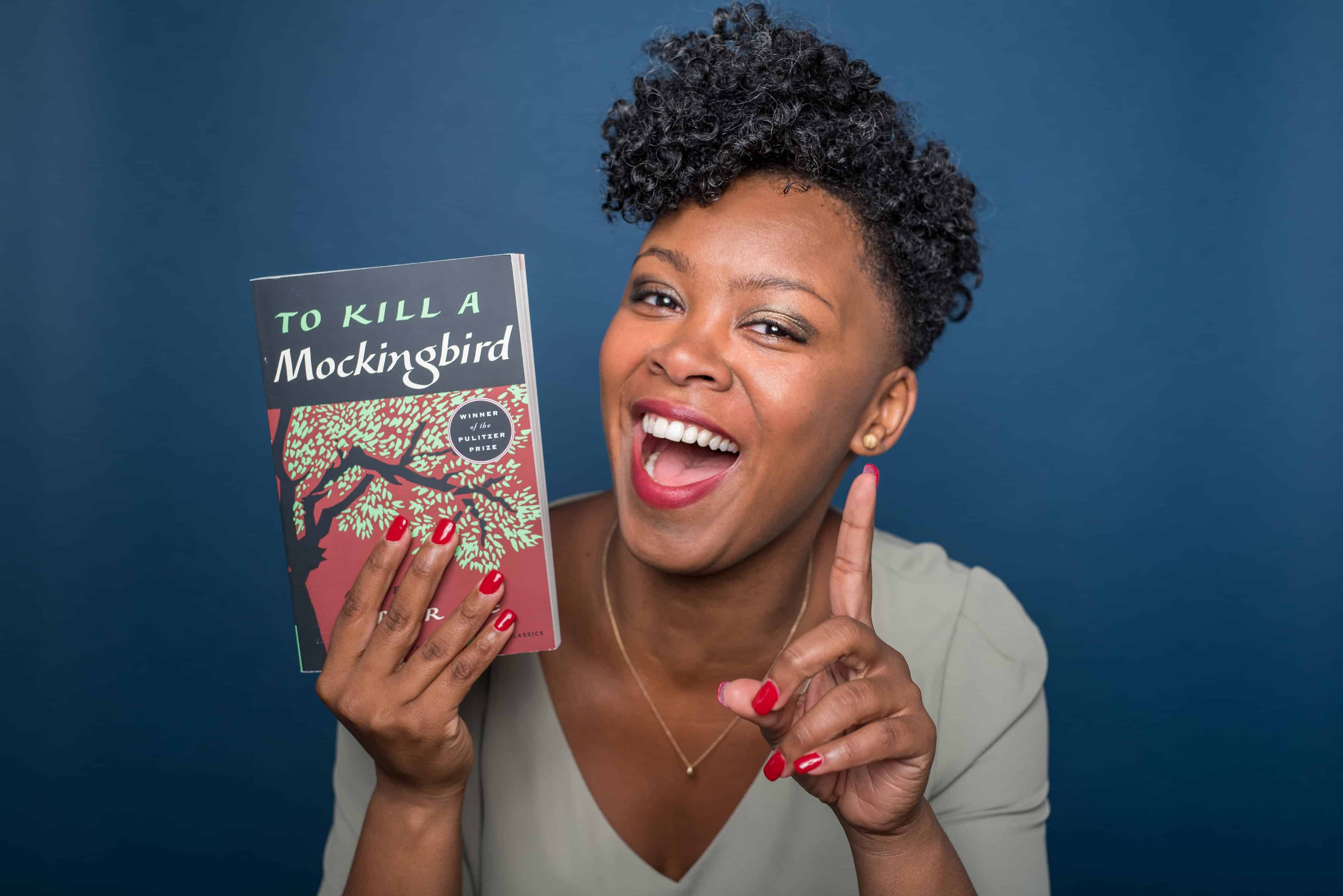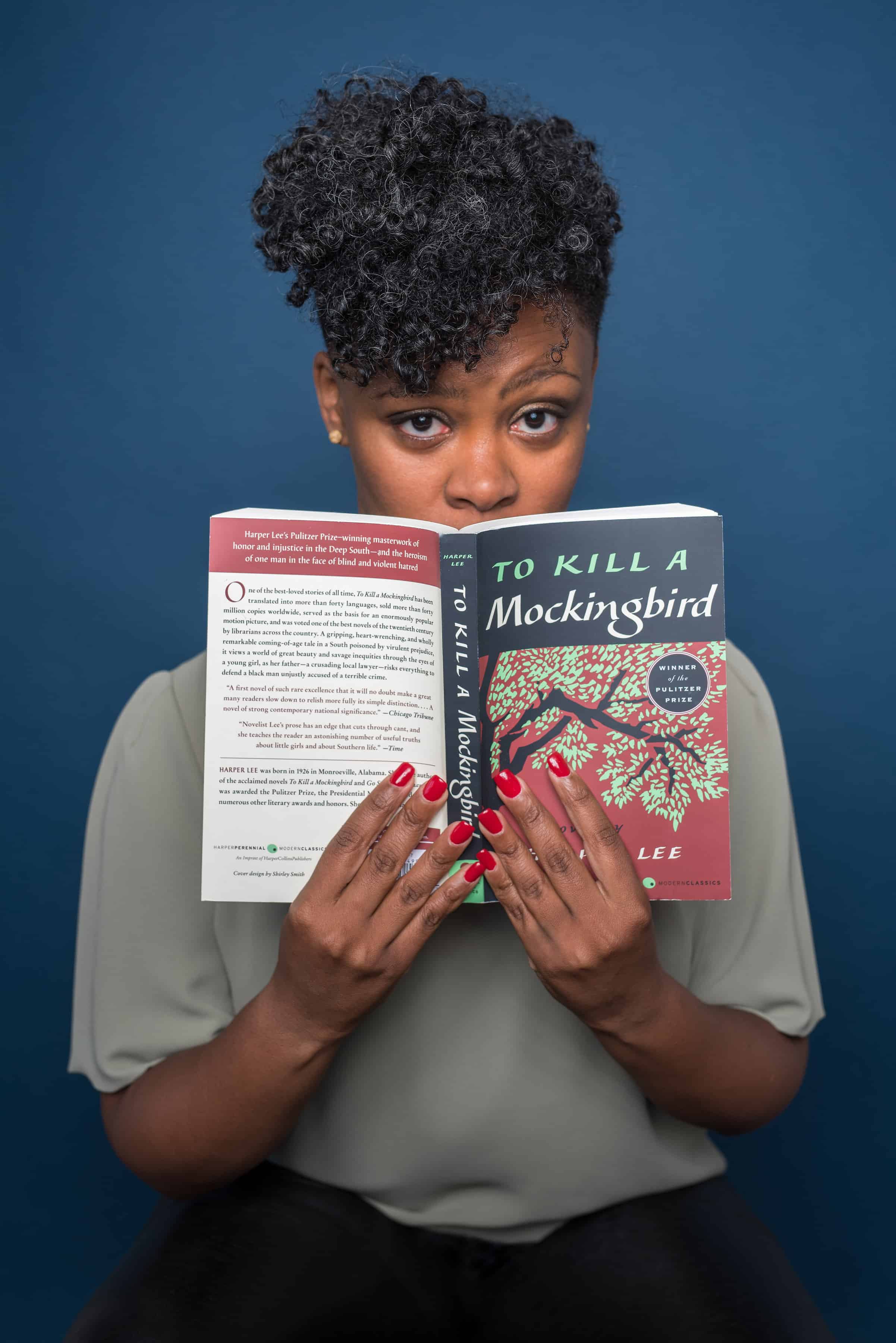Audrey Dwyer’s Calpurnia is a provocative and satirical look at class, race and appropriation. The play follows the story of Julie, a screenwriter from a wealthy Jamaican-Canadian home, who goes to extreme lengths to redress To Kill a Mockingbird through the perspective of Calpurnia, the Finch family maid.
“Calpurnia is about a young woman who is coming into her politics,” notes Dwyer. “It is about a family that is fighting its way through being stuck. It is about race, class, gender and intersectionality.”
We asked Dwyer about the play this week.
SDTC: What was your first exposure to To Kill A Mockingbird? How has your view of the book changed over time?
AD: I read the book in high school. We studied the book thoroughly and we also watched the film. At the time, I remember feeling slightly isolated. Hearing teachers discuss racial slurs and their thoughts on them made me feel quite uncomfortable. We also learned about equality. The feeling of isolation was tempered with the fact that I also felt strangely visible. It was the first book that we read in class that actually had characters that looked like me. I also felt seen in an odd way.
Reading it as an adult is very different. I understand that there is so much romanticism and nostalgia at play. I see that the characters aren’t three-dimensional. I understand Harper Lee’s intention and how the book still has a hold on our minds. I see that reading a book that includes police violence towards Black men without any resolution mirrors our world. I read Finch’s tactics in court and I feel nervous for young women who have suffered violence and who are considering taking people to court. I read about Boo Radley and think about how mental illness is addressed in the novel. When I read the book now, I think about how the lesson of “we are all equal” is so tremendously dated.
What was behind your decision to make Calpurnia the focus of your play?
The question I am asking in Calpurnia is How are we to be in the world today? I think that is something that we’re all struggling with right now. How to be present, how to be aware, how to practice self-care, how to be political, how to be better people.
What was the biggest challenge you overcame in putting this play together?
The biggest challenge was to authentically reflect the conflict people go through in order to be better in the world. I wanted to reflect the stresses and the comforts of liberalism.

Photo: Dahlia Katz
Have you learned anything new about yourself in writing this play?
I’ve learned that, as an artist, if people say no, you must advocate for yourself and keep on trying.
What do you hope audiences will take away from Calpurnia?
I want audiences to re-examine their connection to To Kill a Mockingbird. I want them to engage with Calpurnia. I want them to come away with more empathy for young Black women. And I want them to look at the wonderful women who do domestic work in a completely different way.
In broader society, what should we be paying more attention to?
Those who are on the margins.
Nightwood Theatre + Sulong Theatre’s Calpurnia runs January 14-February 4 at Buddies in Bad Times Theatre (12 Alexander St.) get tickets here.



 Follow Us On Instagram
Follow Us On Instagram



 We’ve gathered
We’ve gathered 
 We’re giving aw
We’re giving aw